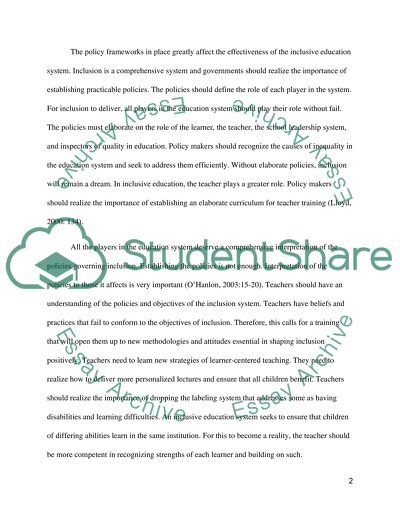Cite this document
(“Inclusive Education in the UK: from de jure towards de facto Essay”, n.d.)
Retrieved from https://studentshare.org/education/1440226-inclusive-education-in-the-uk-from-de-jure-towards
Retrieved from https://studentshare.org/education/1440226-inclusive-education-in-the-uk-from-de-jure-towards
(Inclusive Education in the UK: From De Jure towards De Facto Essay)
https://studentshare.org/education/1440226-inclusive-education-in-the-uk-from-de-jure-towards.
https://studentshare.org/education/1440226-inclusive-education-in-the-uk-from-de-jure-towards.
“Inclusive Education in the UK: From De Jure towards De Facto Essay”, n.d. https://studentshare.org/education/1440226-inclusive-education-in-the-uk-from-de-jure-towards.


